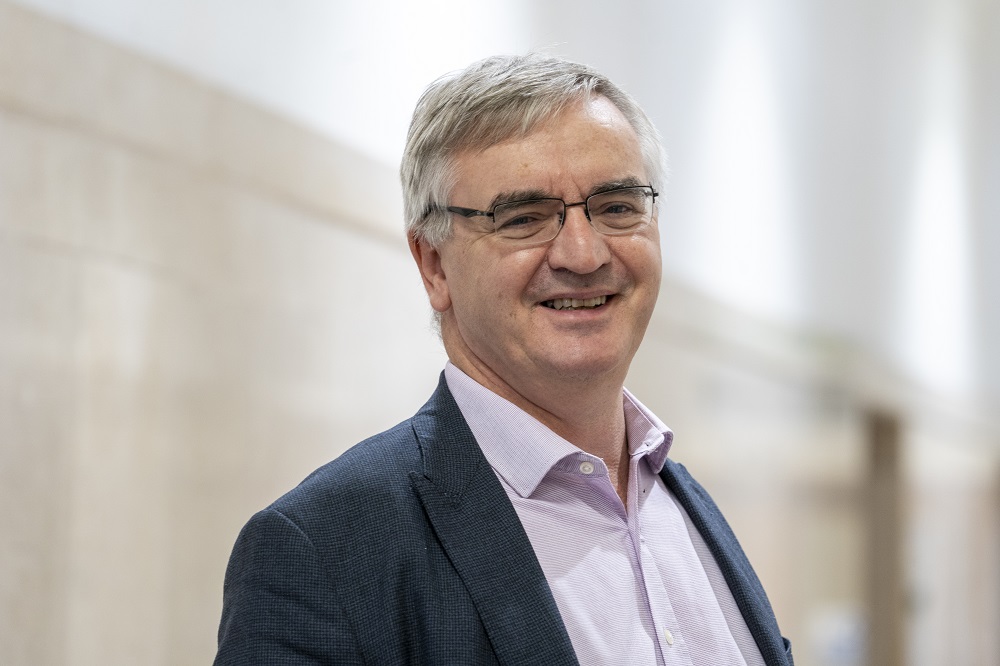
February 26, 2025, by Rob Ounsworth
REF 2029: staff encouraged to apply to serve on assessment panels
Research update by Professor Tom Rodden
Colleagues are encouraged to apply for membership of the national panels that are at the heart of the assessment process for REF 2029.
This is an exciting opportunity for professional development. These panels bring together specialists in each unit of assessment, with opportunities to enhance skills in research evaluation and broaden understanding of research quality standards. You’ll also build relationships with leading researchers and academics from other institutions.
The university will benefit reputationally by having staff participating in the Research Excellence Framework and from the enhanced expertise and insights panel members will bring to REF preparations now and in the future.
The deadline for applications is midday 28 April 2025.
Visit REF 2029 for more information on the panels and how to apply.
In addition, the university has produced a guidance on support for REF panel members.
Zero Carbon Innovation Centre at heart of regional hub
Ahead of the opening of the Zero Carbon Innovation Centre on Jubilee Campus, I am delighted to share news of significant progress in this area.
The university has been awarded planning permission to build a new hydrogen propulsion lab on the campus, in partnership with Research England and industry partners. The lab will enable research and safe high-power testing of propulsion systems for transport industries. It will be connected to the megawatt-class testing facilities of the adjacent Power Electronics and Machines Centre.
Together with the Zero Carbon Innovation Centre (ZCIC), these facilities position Jubilee Campus as a regional hub for innovation in clean energy and propulsion.
The ZCIC is opening on 11 March, when regional industry and political leaders will hear more about how our partnerships and sector-leading facilities for zero carbon innovation underpin our vision to consolidate the East Midlands’ position as a world leader in the development and deployment of innovation in green industries and advanced manufacturing.
Promoting the Zero Carbon Cluster
A communications toolkit has been created to provide colleagues with resources and information on how we can work together to promote the university’s Zero Carbon Cluster and its programme.
Innovation at heart of vision for East Midlands
I am proud to support the region’s vision for sustainable economic growth by serving as chair of the East Midlands Combined County Authority’s (EMCCA) Innovation and Advisory Board. With colleagues from Nottingham Trent and Derby universities, and representatives from industry, SMEs and funding bodies, we will work together to help put innovation at the heart of EMMCA’s mission.
Global experts in cancer research come together to look at health inequities
The Biodiscovery Institute hosted a visit from world-leading experts and key figures in cancer research met to discuss their work investigating health disparities.
The meeting focused on how leading experts from universities in the USA, UK and across Africa are working together to better understand why breast, prostate and increasingly pancreatic cancers are more common and more difficult to treat in patients of African ancestry.
The research has been made possible thanks to team SAMBAI, funded through Cancer Grand Challenges. Professor Nigel Mongan from the Biodiscovery Institute is leading a team of cancer researchers who work in close partnership with patient advocates in team SAMBAI at Nottingham.
Conversations with PGRs – let’s talk about research culture
Postgraduate research students are invited to join Professor Jeanette Woolard, Associate PVC for the Researcher Academy and Research Culture Development, at a series of informal conversation sessions to share their experiences, voice their ideas, and help shape a more supportive and inclusive research environment at the university.
These sessions run until 10 March.
Find out more: Conversations with PGRs – let’s talk about research culture
Success for university spin-outs
Medical Photonics Ltd is a new university spin-out company set to deliver the Faculty of Engineering’s innovations in optical fibre sensing into new smart technologies that will improve outcomes in the NHS.
The company has been founded by Professors Steve Morgan, Barrie Hayes-Gill, and Serhiy Korposh, and Doctors Ricardo Correia and Brett Gadsby from the Faculty of Engineering, alongside external chairperson David Whelan and clinician Doctor Andrew Norris.
And congratulations to university spin-out MatAlytics Ltd, which won the deep tech innovation award at the University of Warwick-hosted Festival of Innovation and Grassroots Growth Summit.
MatAlytics, which specialises in AI software for the power industry to analyse and influence operational behaviour, was also highlighted as an exemplar of knowledge exchange in a 10th anniversary report on the impact of the Innovation to Commercialisation of University Research (ICURe) Programme, the Innovate UK-funded accelerator that helps researchers explore the commercial potential of their innovations.
UniCore: thank you for hard work and commitment
Our research community is facing significant challenges as we collectively navigate the complexities of the UniCore implementation.
I fully recognise that this transition has made many of our processes more difficult, time-consuming, and, at times, confusing. These challenges are impacting academics and APM staff alike. However, I am deeply grateful for the dedication everyone has shown in keeping core research activities moving forward during this demanding period.
While there is still much to resolve, please rest assured that these difficulties have not gone unnoticed. Daily discussions are taking place to address challenges, refine priorities, and work toward solutions. In the coming weeks, I hope to speak with many of you – to provide updates on our progress and hear first-hand about your concerns so we can focus our efforts where they are needed most.
In the meantime, I encourage you to maintain the same spirit of collegiality, patience and mutual respect as we navigate this transition together. Thank you again for your hard work and commitment.
Find out more: UniCore updates about support, reports, and processes
Environmental impact of AI
There are high hopes that AI can help tackle some of the world’s biggest environmental emergencies. But there’s a negative side to the explosion of artificial intelligence and its infrastructure. AI servers are thirsty consumers of water and use massive amounts of electricity and there’s a real risk that our development, deployment and use of AI could do irreparable damage to the environment.
I am chairing the working group behind a Royal Academy of Engineering report that calls on the UK government to take the lead in ensuring the net effect of AI on the planet is positive, and for tech companies to accurately report how much energy and water their data centres are using.
The United Nations Environment Programme (UNEP) cites a study estimating that global AI-related infrastructure may soon consume six times more water than Denmark, a country of 6 million. In Ireland, an emerging AI tech hub, AI data centres could account for nearly 35 per cent of the country’s energy use by 2026.
UKRI Metascience AI early career fellowships
Our university has significant research strengths around the impact of AI. It may be of interest that UKRI’s UK Metascience Unit is funding a cohort of early career fellows to build our understanding of how the growing adoption of AI is changing the research landscape, including what epistemic, metascientific, ethical and socioeconomic questions this raises, and how governments, industry and funding organisations should respond. The closing date for applications is 10 April.
With thanks and best wishes
Professor Tom Rodden
Pro-Vice-Chancellor for Research and Knowledge Exchange
No comments yet, fill out a comment to be the first


Leave a Reply